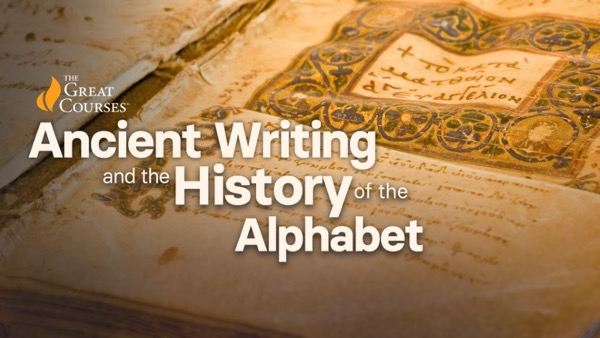


Far from being a language in decline, we have reason to believe that English, with all its beauty and quirks and illogicities, will be carried far into the future.
Institution: Columbia University
Alma mater: Stanford University
The ubiquity of the written word in our everyday lives can make it easy to forget how recent the development of writing and literacy are in the span of human history. But writing is, in fact, a very recent phenomenon if we take a step back and look at the big picture of human development. Even if we simply limit our view to the existence of language, writing still occupies a small segment of time. Writing in its earliest forms, particularly, is very different than what we are familiar with today.
So, when—and where—did writing first emerge? Why did early humans find it necessary to record their thoughts in a visual medium? How did cultures that had relied solely on spoken language for thousands of years create symbols that could carry meaning? And how did all the many scripts and systems that developed over the centuries lead us to the 26-letter alphabet of the English language?
Embark on a journey to the very beginning of writing as a tool of language and see how the many threads of history and linguistics came together to create the alphabet that forms the foundation of English writing. Your guide is Professor John McWhorter of Columbia University and in the 16 lectures of Ancient Writing and the History of the Alphabet, he will help you navigate the complex linguistic and cultural history behind one of our most crucial tools of communication. With his trademark humor and conversational style, Professor McWhorter makes this larger-than-life history as entertaining as it is enlightening.
The Birth of Writing
If humans lived for tens and perhaps hundreds of thousands of years as a species with spoken language yet without writing, why was writing developed? We may speak about writing and literacy in lofty terms today—while simultaneously taking it for granted—but the truth is the earliest writing systems came about for limited uses that would gradually expand over time. The earliest known form of writing, cuneiform, began as a simple way to keep accounts, before it developed into a more abstract system of symbols that represented sound. Egyptian hieroglyphics likely took their inspiration from Mesopotamian cuneiform and were a hybrid of pictograms (symbols directly representing tangible things) and phonetic complements (symbols that represented sounds).
These early systems show the progression of writing from directly representative to a more abstract form that used symbols for sounds rather than objects or ideas, though neither ever progressed to a full alphabet-based system. Hieroglyphics did, however, likely influence the creation of the earliest known alphabet, which would in turn greatly shape the way languages like Aramaic and Greek would build their writing systems and influence languages around the world.
As Professor McWhorter shows you the development and evolution of writing systems, you will go on a sojourn across continents and through time to see how many seemingly unrelated languages share elements that can be easy to miss. With this foundation in place, you will be ready to embark on a fascinating journey through the creation of the English-language alphabet and see how the many threads of writing development can converge in unexpected ways.
Know Your ABCs
To better understand the development of the alphabet, you will look at multiple aspects of language, both as it is written and as it is spoken. Professor McWhorter breaks down his examination of the alphabet by focusing on letters in an order he believes is most crucial to understanding their historical and linguistic roots, highlighting the key elements you need to trace the origins and gradual transformations of these deceptively simple symbols. As you follow along, you will have the opportunity to consider the answers to some of the big questions of language, such as:
These and other questions highlight not just how arbitrary or abstract much of our language use is, but they also help us understand the development of language itself and its connection to the culture and social conditions of its origins. The only way to truly understand why our writing systems operate the way they do is to look at where they come from and how they have been altered again and again as they have converged, transformed, and branched over time.
A History in Letters
So, what does the development of the alphabet tell us about language? Aside from the simple pleasure of understanding the roots of one of our most used tools of communication, the origins of the alphabet highlight a key element of language: connection. As peoples and cultures have encountered one another over the centuries, their languages have deeply influenced each other both directly and indirectly.
Very few writing systems were built from the ground up and in isolation. Instead, nearly every script was inspired and influenced by others, revealing the ways humans have always influenced one another across the ages. Language barriers certainly exist, and yet the thousands of languages spoken and written around the world share ancestors and key features that can be traced through every era. From the very beginning of its development, writing has had the unique dual role of recording history on the page and encoding it within its own symbols and structures.
As you will see throughout Ancient Writing and the History of the Alphabet, the alphabet is not the result of careful planning and perfect efficiency. Rather, it is the product of a multiplicity of human interactions and chance encounters, from trade and migration to slavery and war, and everything in between. Some letters have straightforward origins, while others have gone through spectacular and unpredictable transformations. As you trace the movements and evolutions that helped shape the writing we use today, you will have the opportunity to see language in a whole new way, one that connects us in ways you may have never realized.
There are no reviews yet.
You must be <a href="https://wislibrary.net/my-account/">logged in</a> to post a review.